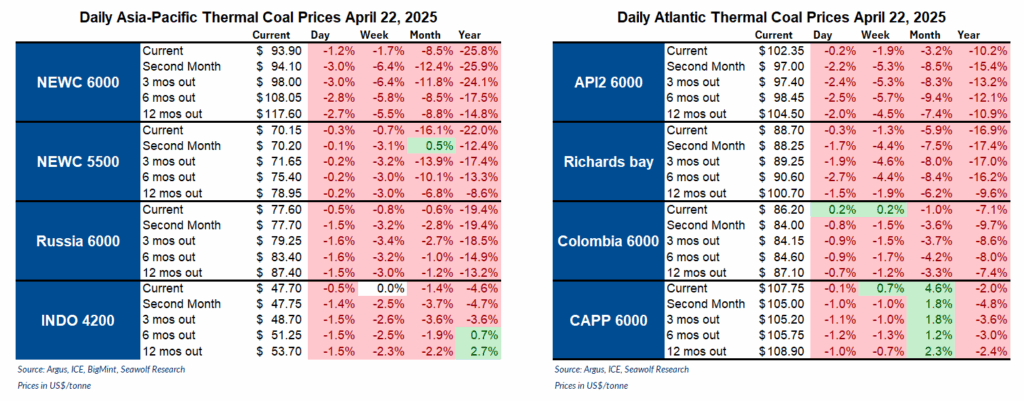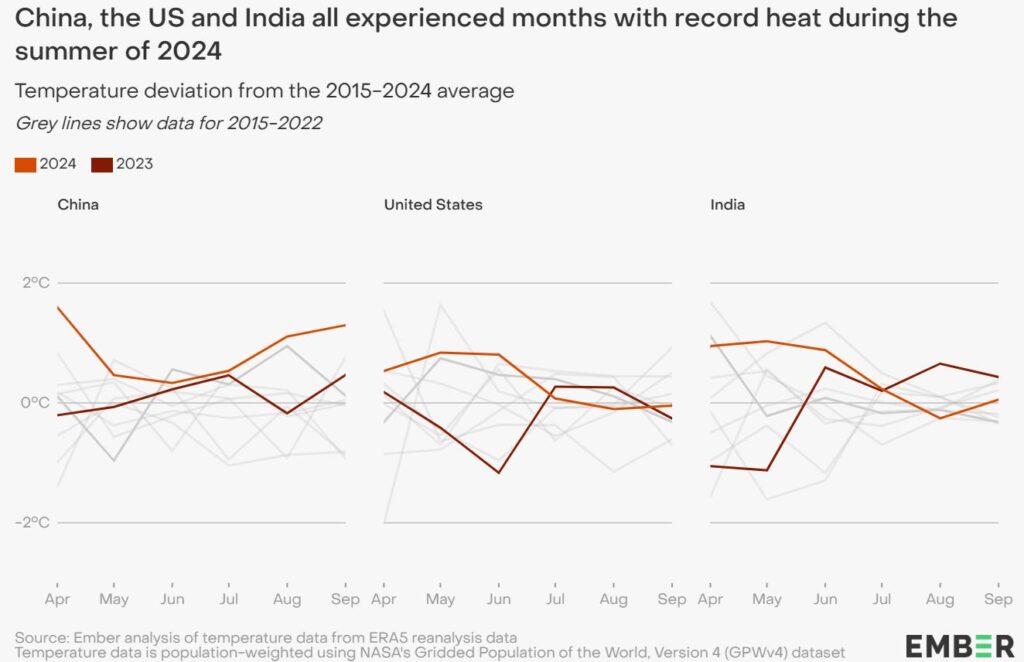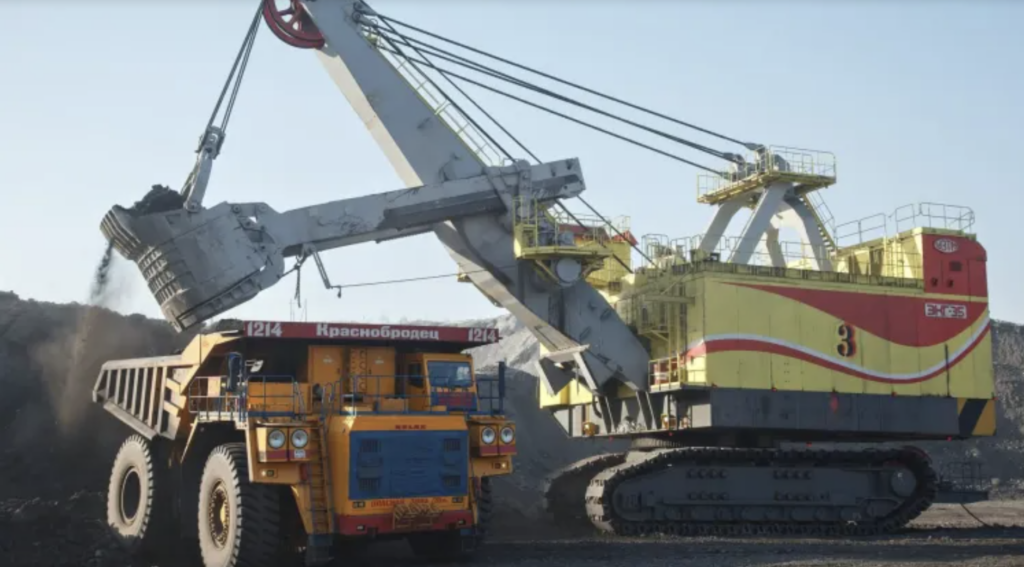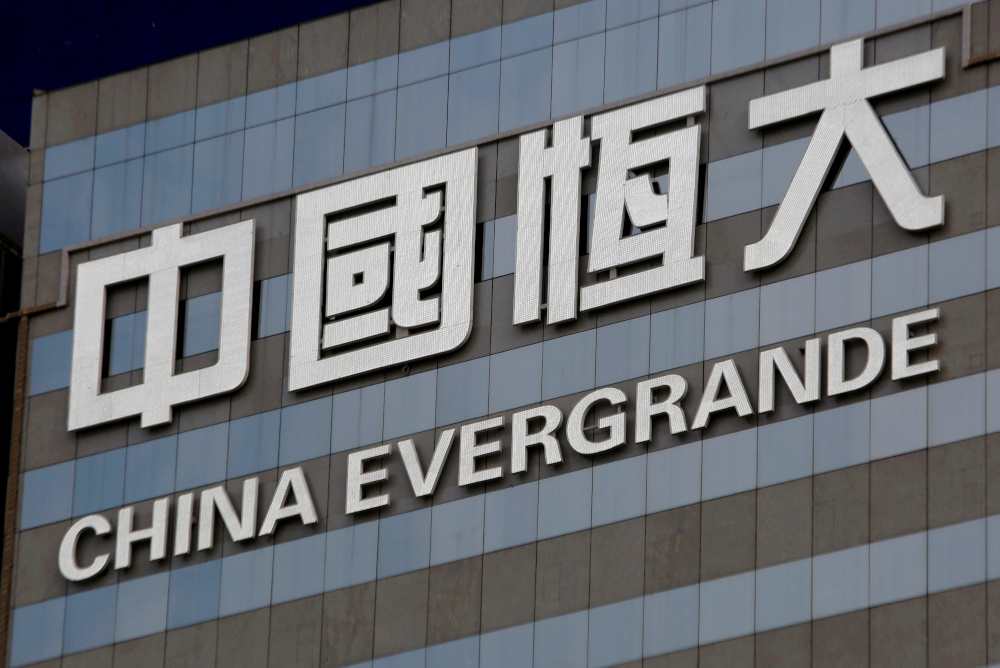China’s domestic market for thermal coal may soon find a floor if buyers show renewed preference for domestic cargoes, now that imports have lost some lustre, Mysteel Global has learned.
Three straight weeks of decline in thermal coal prices at China’s northern ports have meant that imported cargoes have enjoyed little price advantage for domestic end-users over comparable domestic coal cargoes, sources said.
For example, Mysteel’s survey shows that the lowest bidding price that Chinese traders placed on March 20 for domestic power utilities’ tenders for Indonesian 3,800 kcal/kg NAR coal was Yuan 539/tonne ($74.9/t) CFR South China basis and with VAT included. This was lower by only Yuan 5/t from coal of the same-calorific-value offered at northern ports.
Moreover, traders’ minimum bids for Indonesian 4,500 kcal/kg and Australian 5,500 kcal/kg NAR coal of Yuan 650/t and Yuan 865/t (basis CFR South China including the VAT), were even higher by as much as Yuan 10/t compared with cargoes at northern ports, according to the survey.
The narrowed price gap between the two sources of thermal coal resulted from their diverged price trajectories in recent weeks, Mysteel Global noted. Import prices strengthened due to the spreading concerns over global coal supplies while domestic prices were weighed down by lukewarm demand. As a result, some Chinese coastal power plants have turned their focus back to domestic coal, as evidenced by some plants’ new tenders placed on Wednesday for 5,000 kcal/kg NAR thermal coal offered at the northern ports, sources revealed.
The renewed interest in domestic coal has slightly improved sentiment among domestic participants, encouraging portside traders on Thursday to tentatively hold their offering prices for the 5,500 kcal/kg NAR coal steady at Yuan 845-860/t, on FOB basis at northern ports and with VAT. The prices had previously weakened for three consecutive weeks, Mysteel’s tracking data showed.
This has fuelled suggestions that the declining attractiveness of imported coal may push Chinese buyers back to the domestic market. However, a Shanghai-based analyst warned that support for domestic thermal coal prices could be short-lived and limited. Notably, Chinese power groups are aggressively squeezing settlement prices for both imported and domestic thermal coal cargoes as their lower electricity output in response to weaker seasonal demand means they need to burn less coal, he observed.
For example, daily coal consumption among the 259 power plants that Mysteel monitors nationwide declined by 6.9% on week to 2.23 million tonnes/day over March 11-15, while the 42.87 million tonnes of coal they have stocked as of last Friday could still last them for 18.8 days of consumption, a three-week high.
In the short term, coal demand will remain limited, he predicted, adding that the temporary shunning of imported coal will likely lead to fiercer competition with domestic cargoes and steeper price retreats for both in the current buyers’ market. Indeed, several domestic power utilities have re-floated tenders for some Indonesian thermal coal cargoes after their previous tenders failed when the traders’ bids were higher than they had expected, Mysteel has learned. “They are just trying to push import prices lower to cap their costs,” a source said.
Their presently feeble demand means that Chinese buyers are playing the role of swing buyer in the domestic and import thermal coal markets, the source observed, suggesting that their stay in either market is unlikely to provide sustained momentum.
Written by Tammy Yang










